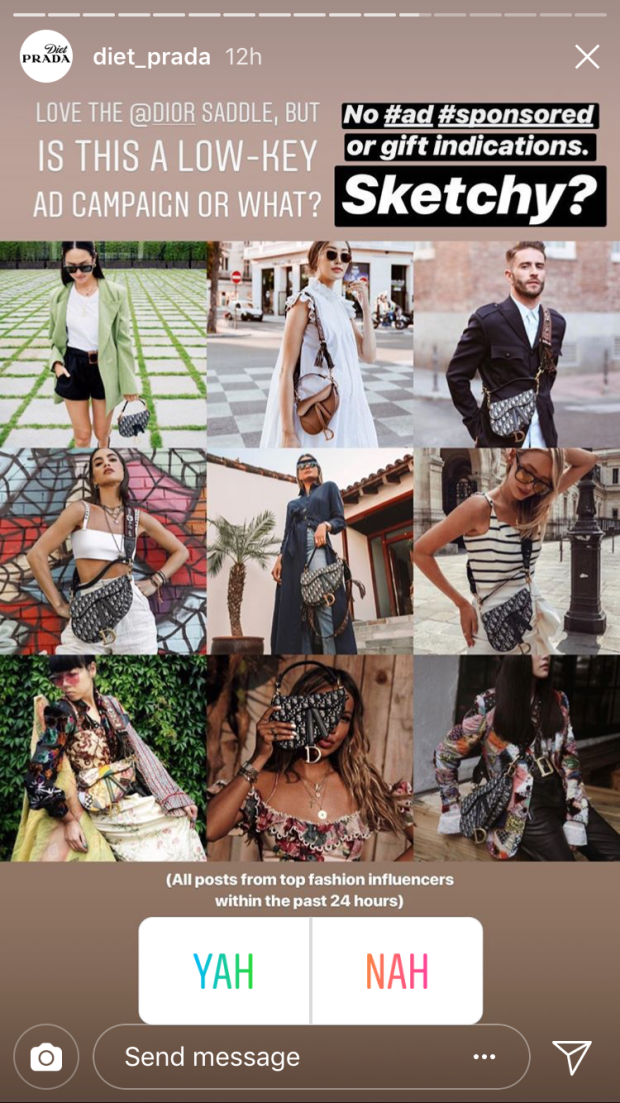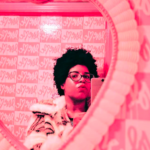The beauty community is grappling with a fury of drama. Not only are some of the top influencers dealing with accusations of racism and backstabbing, now some are being accused of fraudulent behavior.
A YouTuber who goes by Pretty Pastel Please has claimed that brands pay influencers to share negative reviews of competitor products. Moreover, Pastel also notes that influencers often don't disclose when their posts and videos are sponsored or not.
Let the drama unfold.
Pretty Pastel Please is a fashion and beauty YouTuber. She also works for a big marketing firm.
(Yes, she has a parrot.) Pastel decided to respond to a post by makeup artist Kevin James Bennett who alleged that gurus receive $85,000 from brands to give competitor products bad reviews.
Bennett alleged that an influencer he was going to work with him offered these kinds of posts, "A brand I consulted with asked me to inquire about working with a top-level beauty influencer. The influencer's management offered me these options: 1) $25K — product mention in a multi-branded product review. 2) $50K–$60K — dedicated product review (price determined by length of video). 3) $75K–$85K — dedicated negative review of a competitor's product (price determined by length of video). 4) A minimum 10% affiliate link or code to use on IG and YT."
Pastel, who works as an influencer and as a marketer, confirmed Bennett's claim, saying that brands have asked her to give bad reviews of other products, and has seen the company where she works offer influencers similar deals.
So what's so wrong about brands paying for bad reviews? Well, we watch gurus for their opinions. We trust them to tell us which products are good and which are bad. If they're getting paid to smear a product that is genuinely good, it doesn't only hurt brands, it hurts us.
Pastel disclosed that she knew a big company was launching a product and reaching out to influencers to promote it. When the product came out, she saw influencers posting images, but none of the influencers said their posts were promoted.
"On YouTube, I saw six huge beauty influencers talking about this product out of nowhere. All of them at the same time, and not a single one said it was sponsored... I reckon that those influencers jumped on that campaign, but they didn't disclose it," Pastel said.
Again, the problem here is dishonesty. Is a trend really a trend if it's been paid for and sponsored by a company in secret? Does everyone really like that new handbag, new lipstick, new tea, or were they paid to say that?
One of the most obvious instances of this occurring, as noted by QZ, is when influencers all suddenly had the newly launched Dior saddle bag at exactly the same time.
Diet Prada was quick to point out that tons of top influencers suddenly had the bag, but none of them indicated that the bag was sponsored or that their posts were ads.

In 2017, the FTC announced a crackdown on influencer posts that didn't disclose brand sponsorships.
The FTC said it sent 90 letters to influencers and marketers on Instagram after a petition was filed by Public Citizen against dozens of celebrities.
According to The Fashion Law, "The FTC is not publicly releasing the letters or the names of the recipients of such letters at this time. However, we do know that undisclosed posts by: the Kardashian/Jenners, A$AP Rocky, David and Victoria Beckham; actresses Anne Hathaway, Blake Lively, Ashley Benz, Shay Mitchell, and Lucy Hale; models Bella and Gigi Hadid, Irina Shayk, Emily Ratajkowski, Naomi Campbell, Chrissy Teigen, and Heidi Klum; Scott Disick, Pharrell, Steph Curry, Zlatan Ibrahimovic, Drake, One Direction members Louis Tomlinson and Niall Horan; and Jennifer Lopez, among others, were specifically cited in Public Citizen's formal complaint to the FTC."




